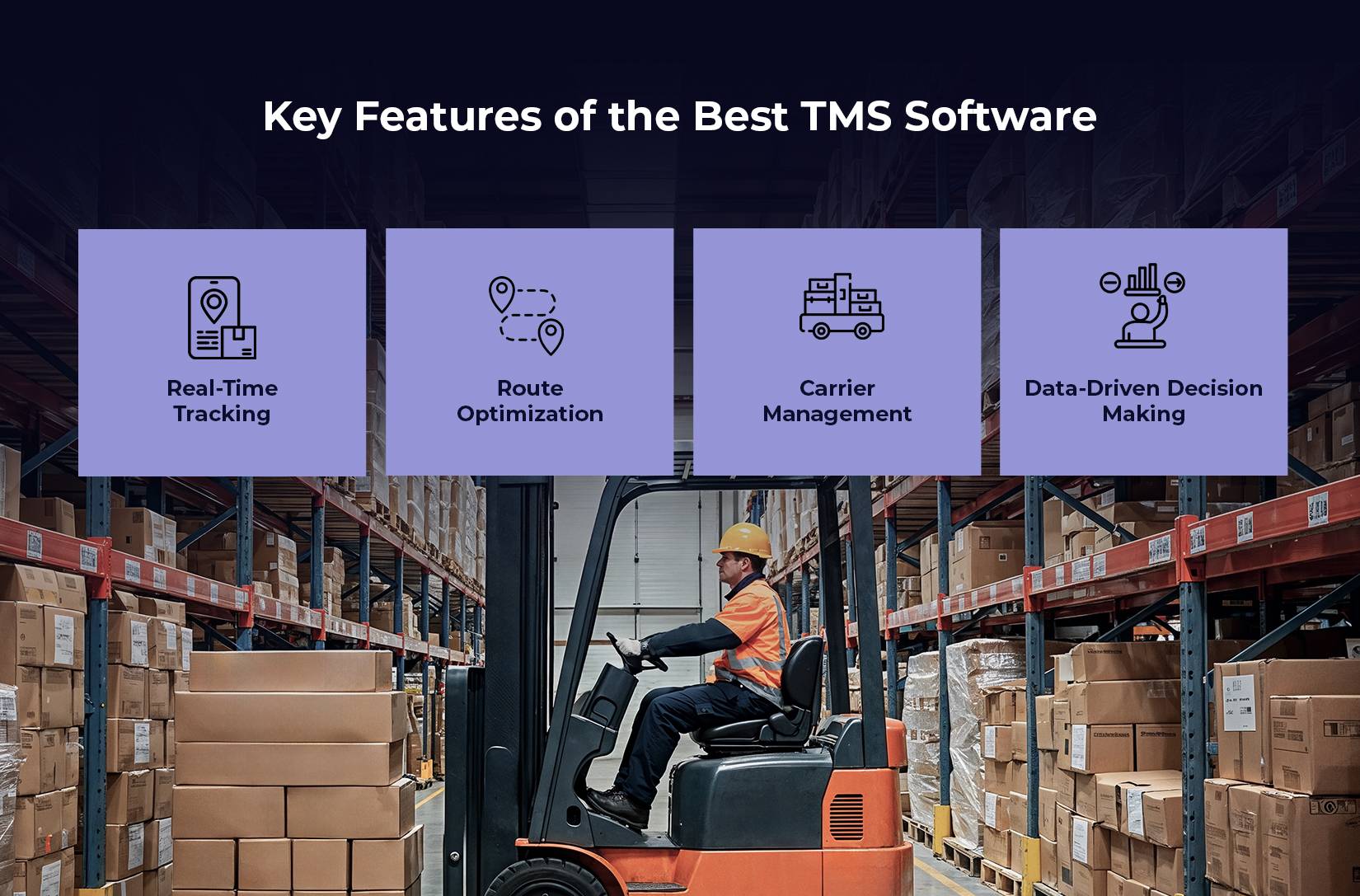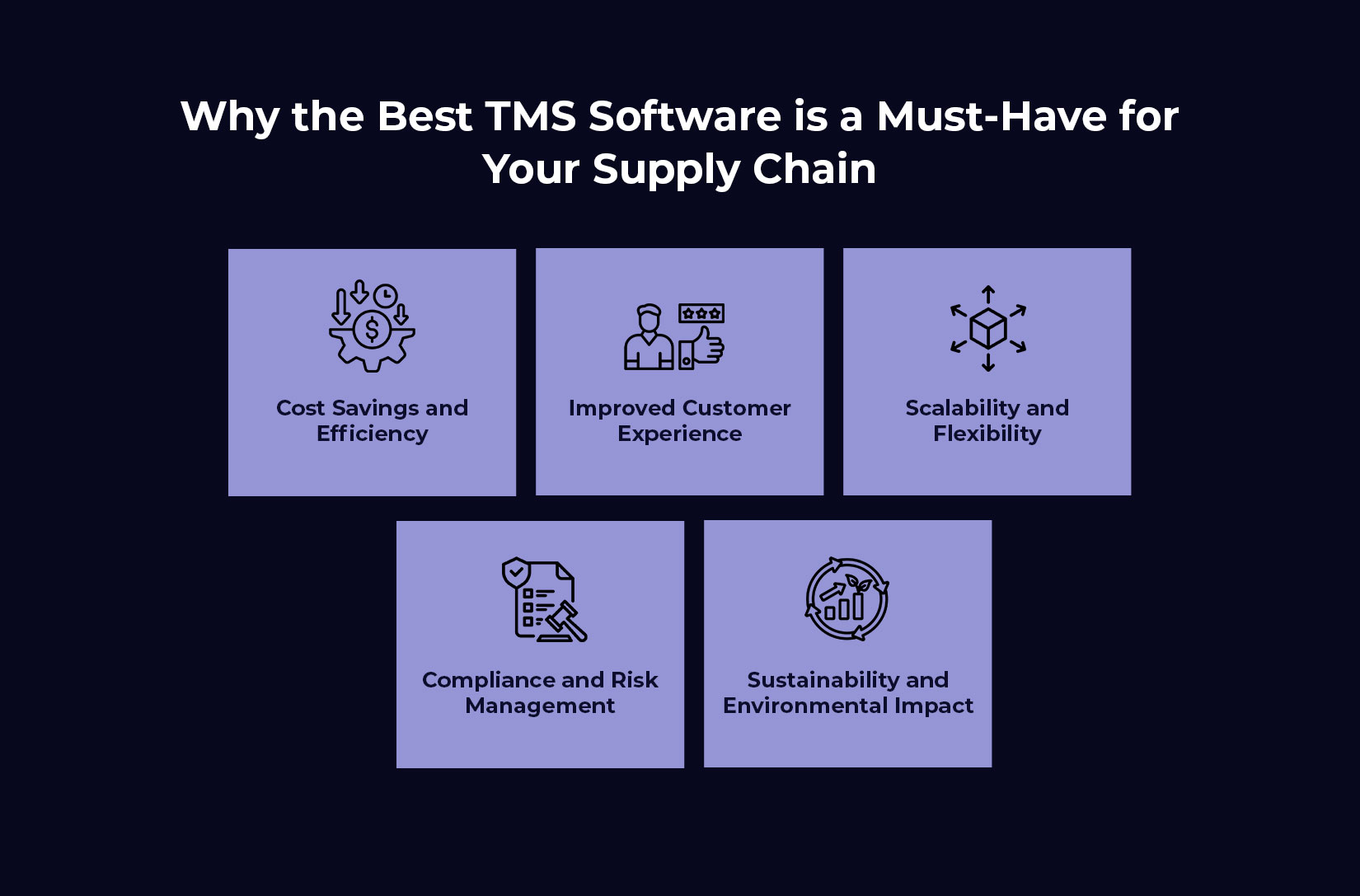
Why Every Modern Business Needs the Best TMS Software
In the current logistics environment, businesses are facing a lot of pressure to streamline their operations and to meet the rising customer expectations. Supply chains are becoming more complex day-by-day. Businesses need tools that offer real-time visibility, efficiency and cost savings. This is where the best TMS software comes into play, providing an essential solution to meet the modern supply chain demands. In this blog we’ll explore why investing in the best transportation management software (TMS) is crucial for a business.
The Role of TMS Software in Modern Supply Chains
A transportation management system (TMS) plays an important role in perfecting transportation processes. A robust TMS is able to streamline a wide array of logistics functions. Functions like managing routes, tracking deliveries or ensuring timely shipments. The best TMS software offers advanced features like real-time tracking, route optimization, carrier management and data analytics. All of these are critical for a maintaining a smooth and efficient supply chain.
As per Gartner, companies saw an average of 12% reduction in transportation costs, with optimized TMS. This shows the impact the best transportation management software can have on a company.
Key Features of the Best TMS Software

The best TMS software comes with a variety of features, some of the key ones are mentioned below:
1. Real-Time Tracking:
Businesses are able to monitor their delivery and shipments at every stage with real-time tracking. This allows logistics managers to quickly address any issues. Issues such as delays or route changes, ensuring minimal disruptions to the supply chain. Real-time visibility is also crucial for improving customer satisfaction and reducing costly delays.
2. Route Optimization:
One of the most crucial features of TMS, is the ability to optimize delivery routes. This helps in ensuing that the shipments reach their target destination in the most cost-effective and timely manner. Businesses can cut fuel costs and improve delivery efficiency by reducing unnecessary miles and delays.
3. Carrier Management:
Its important to choose the right carrier to delivery products while keeping the costs in check. The best TMS will enable the business to efficiently manage relationships with multiple carriers, compare rates and track performance. This features enables the business to select the most cost-effective and reliable carriers for each shipment.
4. Data-Driven Decision Making:
A TMS through data analytics will provide detailed insights to the business about their transportation operations. Logistics team can make informed decisions that enables them to drive continuous improvement across the supply chain. This can be done by analyzing key performance metrics, such as delivery times, costs and carrier performance.
Why the Best TMS Software is a Must-Have for Your Supply Chain

1. Cost Reduction and Efficiency:
With today’s competitive environment, lowering transportation costs is vital for staying profitable. The best transportation management software will help companies save a great deal of money. Also, allowing you to save on transportation costs via better route planning, improved carrier negotiations, and reduced fuel use. In a study by the Aberdeen Group, companies using TMS software reported a reduction of up to 15% in transportation costs within one year of implementation.
Additionally, the automation enabled by transportation management systems reduces labor-intense tasks. Through this companies can leverage their human resources more effectively. In turn, this leads to higher overall productivity and furthermore decreases the likelihood of human errors that could impact logistics, and, therefore, margins adversely.
2. Improved Customer Experience:
Customers have higher expectations than ever before. They want their deliveries fast, accurate, and transparent. A TMS helps streamline logistics, and enables businesses to send live updates to customers about their shipments. The transparency alone builds trust in the relationship, as a habitual lack of transparency can lead to customers lost for life.
Additionally, transportation management solutions are equipped with many efficiency-optimizing features which would better ensure that deliveries are regularly made on-time. On-time delivery is critical of reducing late deliveries, and repelling the demise of customer relations.
3. Scalability and Flexibility:
Transportation requirements tend to become more complex as a business expands. The best TMS software is scalable and can adapt to anybody’s changing demands within their supply chain. New markets can emerge, shipment volumes can increase, concurred carriers can be added, and the TMS can handle increased complexity without sacrificing efficiency.
For instance, if a business moved to an international market, the best transportation management solution would provide flexible options. This helps to ensure a global shipment with customs documentation and multi-country routing options.
4. Compliance and Risk Management:
As it relates to compliance, uncertainty in the regulations governing the logistics industry creates a lot of concern for businesses. A TMS allows businesses to stay compliant by integrating the latest industry standard practices and regulations into operations. It also works to highlight and mitigate any risks by identifying variability across the entire supply chain. Along with it, it shows any highlighted routes violations or other delays.
5. Sustainability and Environmental Impact:
Sustainability is becoming more and more important to consumers and businesses as well. The optimal TMS software can provide companies with the ability to lessen their environmental impact in the form of optimized routes, reduced fuel consumption and reduced empty miles. All of which will reduce transportation costs and help companies meet their sustainability targets.
According to McKinsey, optimization of routes through TMS software may reduce fuel consumption by as much as 10%. This will result in cost savings and reduction in carbon emissions.
How to Choose the Best TMS Software
There are several factors to consider when evaluating transportation management systems to find the best fit for your business. Take the following areas under consideration:
1. Easy Integration:
The system should plug right into existing systems ( ERP, WMS, CRM ). This helps the data can flow seamlessly across the supply chain.
2. User Friendly:
The system should be intuitive and uncomplicated. Your logistics team should be able to swiftly adopt this new S/W, to maximize the potential of TMS.
3. Customization:
All supply chains are different and the leading transportation management S/W should offer the ability to customize for certain business needs. Needs such as preferred carriers, shipping methods, and compliance rules.
4. Training/Support:
A reputable TMS provider should offer adequate training and support. This is important as it helps your business can achieve the maximum potential of the system and monitor your progress.
5. Cost:
Although TMS software is a tremendous cost savings tool, it must also adhere to the organization’s overall budget. TMS providers generally provide flexible pricing plans to accommodate businesses of any size in the adoption of transportation management solutions.
Conclusion
Since the logistics environment is changing so rapidly, having TMS software is a necessity in today’s world. The right TMS software will help streamline processes, reduce cost, drive customer satisfaction, and make better business decisions in determining what affects the supply chain. With the right transportation management software businesses can have a competitive advantage in the ever-changing logistics environment. So, get the best TMS software powered by LogiNext Solutions and empower your logistics today. Click on the red button to know more.
42







@LogiNext